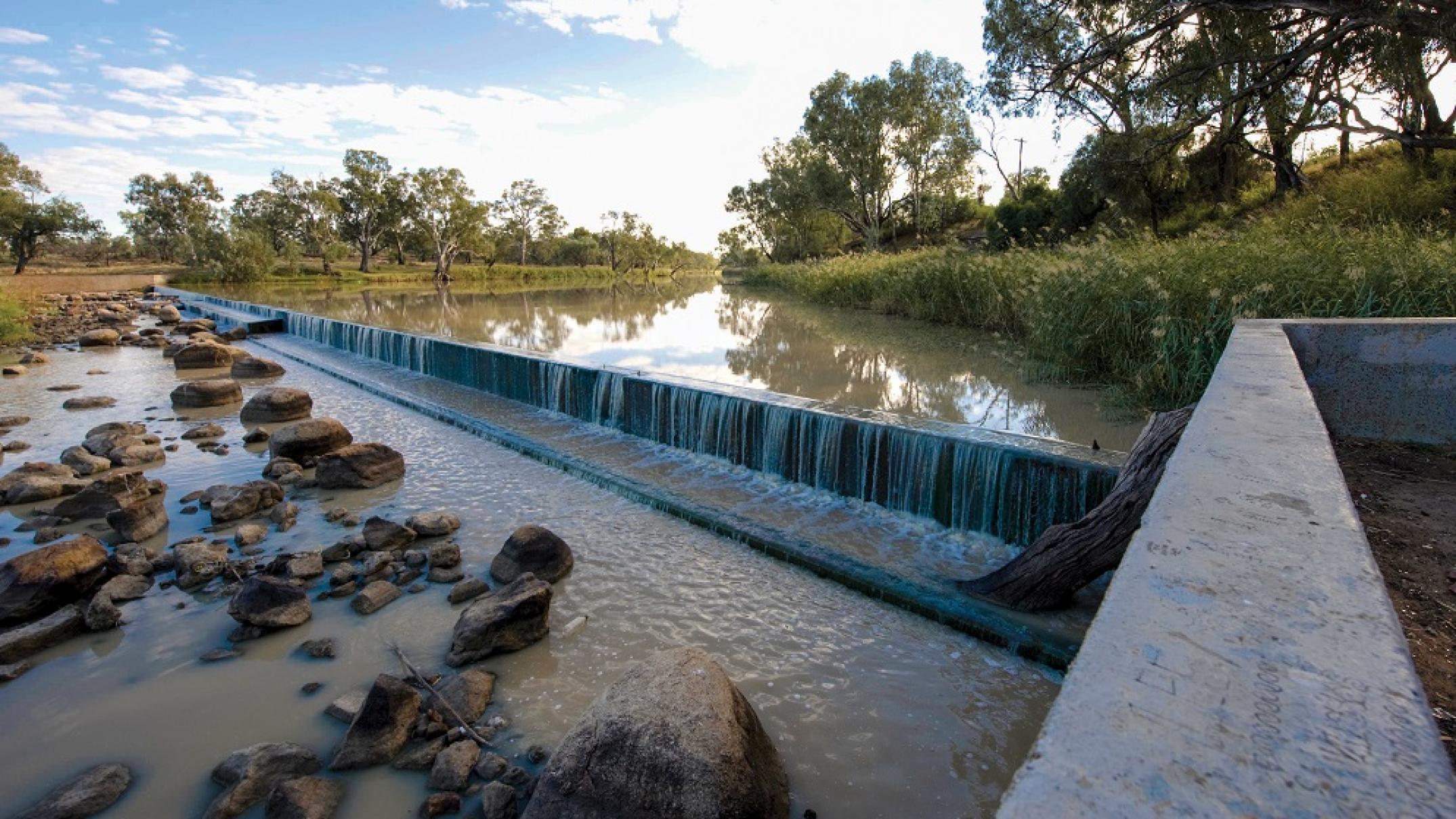No more water will be taken from farms to be returned to the environment under the Murray-Darling Basin Plan following a policy shift announced today by the federal government.
Key points:
- The government cancels a program that funds farmers to save water for the Murray-Darling Basin
- The Water Minister says there is $1.3 billion in government funds to save water from off-farm projects instead
- An SA senator says water for the basin plan should come from willing irrigators
“We think we can do better with off-farm efficiencies,” Water Minister Keith Pitt said.
Speaking from a dairy farm in Victoria, Mr Pitt told the ABC he had axed the Water Efficiency Program (WEP), which provided irrigators in the basin with funds to upgrade and improve water infrastructure on farms.
The program helped to fund projects such as lining irrigation channels so water savings could be shared between the irrigator and the environment.
But Mr Pitt said it had been a failure, and the government would instead allocate $1.3 billion from the Water for the Environment Special Account to fund off-farm water efficiency upgrades.
He would not yet say what off-farm projects the government would fund.
“This is a significant change in terms of a pivot on policy,” the minister said.
Last September, in one of his first announcements as minister, Mr Pitt declared the Commonwealth would no longer buy back irrigation rights from farmers to meet the water-saving targets set by the basin plan.
The policy was not legislated and could contradict the Murray-Darling Basin Plan if enough water was not returned to the environment by 2024.
However, that decision, together with the termination of WEP, almost certainly rules out the prospect of any more water being recovered from farming to meet the plan’s water savings targets.
South Australian senator Rex Patrick has been critical of The Nationals’ handling of the water portfolio and said he believed willing farmers should be allowed to sell their water back to the government so the environment can receive the water.
“The most efficient way for taxpayers to recover water for the rivers is buybacks from willing sellers,” Senator Patrick said.
But Mr Pitt maintains he does not believe any more water should be removed from agriculture.
“As a former farmer I get it. This is what absolutely affects your profitability, your confidence in terms of investment. I think this is a good shift in terms of policy,” he said.
Mr Pitt said that since 2019 the WEP had recovered 0.2 gigalitres — or 0.4 per cent — of the 450 gigalitres of additional water the government was committed to recovering under the basin plan.
“The numbers are the numbers are the numbers are the numbers,” Mr Pitt told the ABC when asked if axing the program proved the program was a failure.
Under the new off-farm water efficiency program to replace the WEP, the government set aside $1.3 billion “for state-led projects, as well as $150 million in direct grants”.
Mr Pitt said the government had identified 50 off-farm projects that would form the core of the new program, with at least 10 ready to commence over the next year.
A total of $60 million would remain in the WEP program for projects that had already been committed.
The government said it was committed to delivering 450 gigalitres of water saving for the environment by 2024.
ABC News: Ben Spraggon
)



